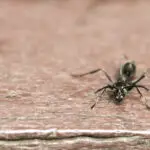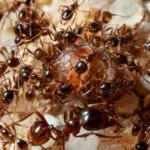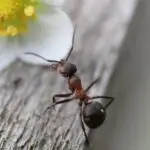Do Ants Cause a Smell?
Having ants in your home is a nuisance. These insects can fit through small cracks in your foundation or siding, and may even climb trees and shrubs. They can also be very hard to get rid of. Some people have even reported allergies to odorous house ants.
Odorous house ants, also known as little back ants or sugar ants, are the most common ants found in homes. Their scents are often compared to the smell of rotten coconuts, but they are in fact derived from a chemical compound called methyl ketones.
The olfactory system of most insects is centered in the antennae. They contain several odorant receptors, which are the ants’ way of identifying different aromatic compounds. The ant’s olfactory system contains about four to five times more odor receptors than those of most other insects.
The ant’s olfactory mechanism also contains some chemical signals, which are known as pheromones. These signals are used to communicate with other ants and to signal that food sources are safe. Some pheromones can also be used to warn predators that the ant is in danger. The ant’s olfactory apparatus may even contain an anti-microbial component, which helps to keep the ant clean.
There are many different ant species that produce interesting smells. Some of these include the trap-jaw ant, which releases a chocolate-like aroma when squished, and the carpenter ant, which sprays formic acid when threatened.
The ant’s olfactory device may be the most useful one of all, as it’s used to send warning signals to other ants. Some people are even able to smell the scent of a dead ant.








